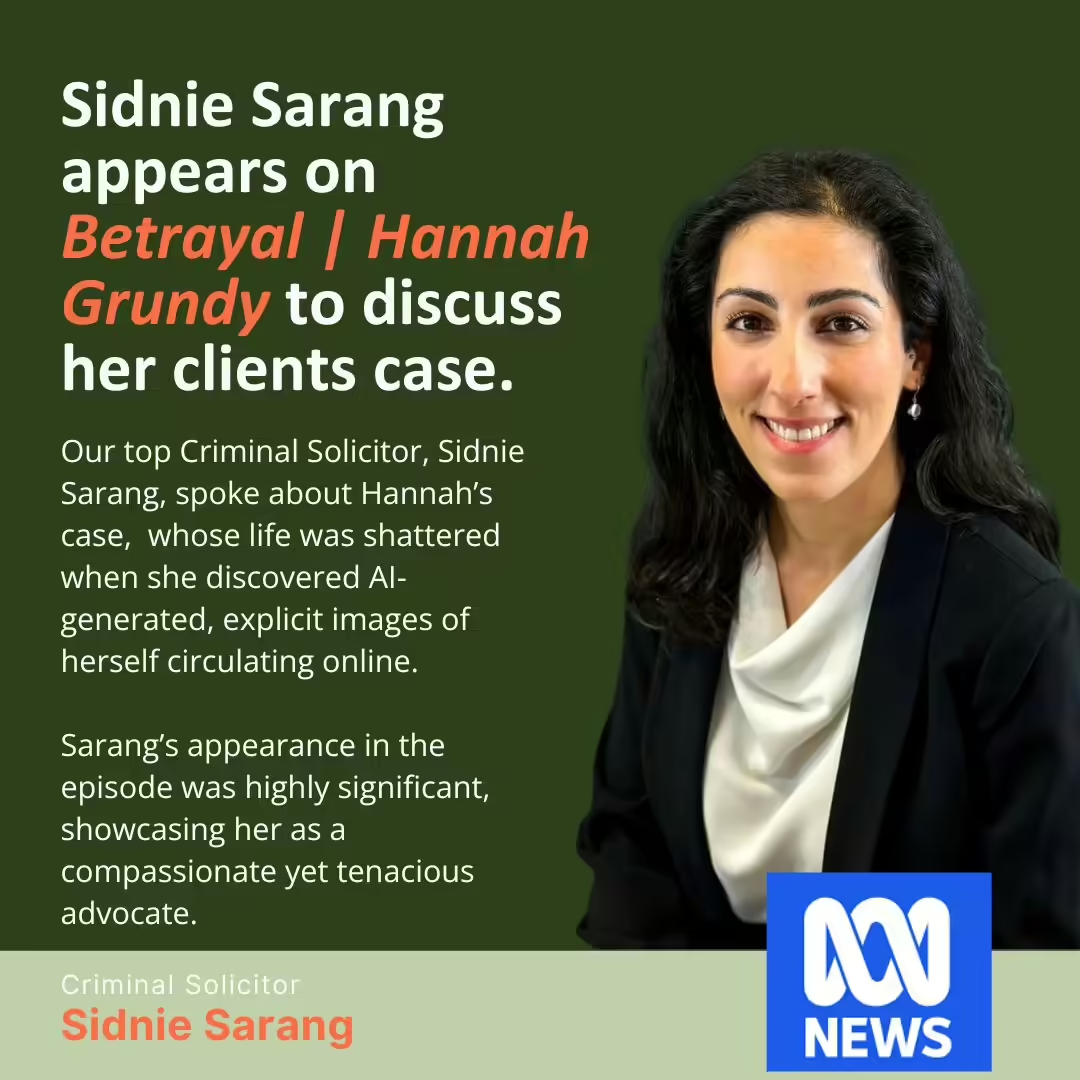Lawyer for Digital Abuse: When a trusted friend used artificial intelligence to create and share explicit deepfake images of her, Sydney woman Hannah Grundy turned to O’Brien Criminal & Civil Solicitors for help. Her case became a pivotal moment in the legal battle against AI, generated image-based abuse, and led to the successful conviction of a serial offender.
Lawyer for Digital Abuse: Case Summary
Hannah Grundy was one of 26 women targeted by Andrew “Andy” Hayler, who used AI tools to produce non-consensual explicit images and disseminate them online. The betrayal was personal and deeply traumatic, Hayler had been a close friend of Hannah’s for over a decade.
Despite initial setbacks from law enforcement, Hannah’s determination to seek justice, supported by criminal lawyer Sidnie Sarang, resulted in Hayler being sentenced to nine years in prison. Her case has become a national touchpoint for legal reform in the age of artificial intelligence.
Case Details: Hannah Grundy
Hannah’s ordeal began when she discovered that AI-generated explicit images depicting her had been shared online. The images were not only fake, they were manufactured by someone she had trusted for years. Andrew Hayler had used artificial intelligence to manipulate content and disseminate it without her consent.
Her distress was compounded when early police responses failed to take effective action. That’s when she engaged O’Brien Criminal & Civil Solicitors. Our criminal lawyer, Sidnie Sarang, worked closely with Hannah to gather evidence and pursue charges through the criminal courts. The effort ultimately led to Hayler’s conviction on numerous counts involving 26 victims.
As reported by the BBC, the case shed light on the emotional and legal hurdles faced by victims of deepfake abuse. It also became a rallying point for changes in legislation aimed at curbing technology-facilitated abuse.
Read our other successful Case Studies here.
Legal Impact: Strengthening the Law
In the wake of this case, lawmakers introduced the Criminal Code Amendment (Deepfake Sexual Material) Bill 2024, which targets the creation and distribution of non-consensual sexually explicit material, whether AI-generated or not. Key provisions include:
- Up to six years in prison for transmitting sexually explicit material of an adult without consent via social media or messaging services.
- Clear inclusion of AI-generated material within the scope of the law.
This law marks a major step in protecting individuals from digital exploitation and aligns Australia with global efforts, such as the EU’s AI Act, which mandates transparency, accountability, and restrictions on high-risk AI tools.

Watch our criminal lawyer, Sidnie Sarang, speak in the documentary on Hannah Grundy’s case.
AI in the Courtroom: Sydney Lawyer for Digital Abuse
The legal system is also adjusting. The NSW Supreme Court’s AI Practice Note now restricts AI-generated content in legal documents, including:
- Affidavits
- Witness statements
- Expert reports
These changes aim to preserve the accuracy and integrity of materials presented in court proceedings.
Conviction Secured, Legal Change Sparked
Thanks to Hannah’s courage and her legal team’s persistence, justice was served. Hayler received a nine-year prison sentence, and Hannah’s case helped trigger a national conversation about AI misuse.
Her advocacy has inspired legal reforms that better protect others from similar harm.
Need a Lawyer for Digital Abuse?
If you or someone you know has been the victim of image-based abuse, deepfakes, or technology-facilitated crime, we can help.
Enquire online or call O’Brien Criminal and Civil Solicitors on (02) 9261 4281. We can also set up a free appointment with the civil lawyers in our Sydney office.
We had permission to use our client’s real name in this case study.


